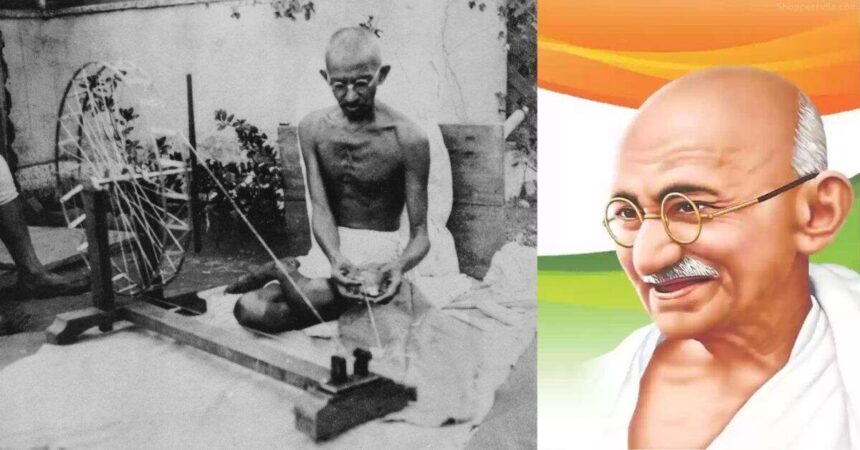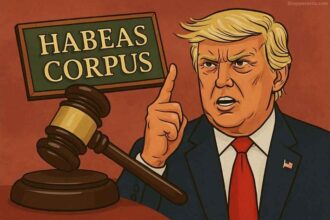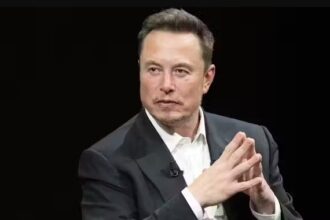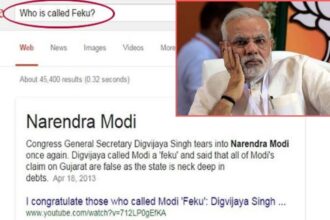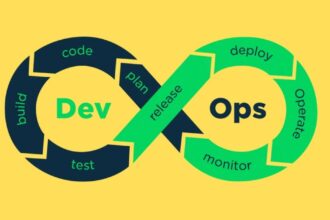Mahatma Gandhi is revered as the Father of the Nation in India. But why is he known by this title and what did he do to earn this stature? This article explores the incredible journey and contribution of Gandhi that led the nation to honor him as the Father of the Nation.
Gandhi played the most pivotal role in India’s freedom struggle through his unique ideology and leadership. He mobilized common people across religions, castes, genders for the cause of Purna Swaraj based on truth and non-violence. His principles of satyagraha and ahimsa became the guiding light for the nation. Gandhi truly built a unified India by evoking nationalism among diverse sections of society. Let’s understand why he is called Bapu and what led to this distinguished position.
How did Mahatma Gandhi Emerge as a National Leader?
Gandhi returned to India from South Africa in 1915. Before plunging into the freedom movement, he spent a year understanding India’s problems by travelling extensively. Gandhi then set up his Sabarmati ashram to start his satyagraha experiments.
What steps did Gandhi take to become a national leader?
- He understood ground realities by connecting with common people across India.
- Sabarmati ashram became his base for satyagraha experiments based on eleven principles.
- His idealism, sacrifice and high values inspired people to see him as a visionary leader.
Gandhi carved a unique place through his earnest efforts to know people’s issues and dedication to lead by example. This shaped him into a credible leader for the masses.
How Did Gandhi Unify the Nation?
Gandhi weaved an emotional unity among diverse groups – religions, castes, classes, languages, genders. This evoked strong nationalism that charged up the freedom movement.
What strategies did Gandhi adopt to unify the nation?
- He urged use of native languages instead of English during speeches.
- Gandhi involved women by urging their participation in satyagrahas.
- He worked tirelessly for eradicating untouchability and caste discrimination.
- Hindu-Muslim unity was an integral goal in his efforts.
Gandhi meticulously crafted methods to create a unified national consciousness and identity across fragmented groups. This emotional binding empowered the freedom struggle.
Why Was Mahatma Gandhi the Voice of the Masses?
Gandhi could instantly strike a chord with millions of peasants and workers through his simple appearance and language. He shunned western attire and spoke in languages understood by commoners.
How did Gandhi emerge as the voice of masses?
- His use of terms like farmer and weaver during trial built rapport with toiling masses.
- Gandhi used simple Hindi and Gujarati during speeches unlike English elitism of other leaders.
- His frugal lifestyle – dhoti, charkha, ashram chores made him relatable and accessible.
Gandhi broke barriers by presenting himself as a common man. This helped him emerge as the true representative of the nation’s majority stuck in poverty and backwardness.
How Did Mahatma Gandhi Make Satyagraha a Popular Movement?
Gandhi crafted the satyagraha technique as a powerful way for the masses to participate in the freedom struggle. His satyagrahas integrated people across geographical and social divides.
What made Gandhi’s satyagrahas a pan-India movement?
- Individual acts like boycotting foreign goods and liquor allowed nationwide participation.
- Mass civil disobedience events like Dandi March, Salt Satyagraha etc attracted huge participation.
- Women and students involvement added to the scale and intensity of protests.
Gandhi engineered satyagraha into a dynamic movement by designing methods for involvement of all sections at individual and group levels.
Why Did Gandhi Lead the Freedom Struggle?
Gandhi’s unrivalled ability to connect with the masses fuelled him as the natural leader of the freedom movement. His idealism and conviction in non-violence strengthened his leadership.
What made Gandhi the obvious leader of the freedom struggle?
- His rapport with people enabled nationwide mobilisation for the movement.
- His commitment to non-violence regardless of circumstances cemented his moral authority.
- Gandhi led from the front during satyagrahas, fasts, negotiations – inspiring people with his bravery.
Gandhi spearheaded the freedom movement through public’s trust in his intentions, courage of convictions and willingness to walk his talk on non-violence.
When and Why Was Mahatma Gandhi Given The Title, ‘Father of the Nation’?
It was Netaji Subhash Chandra Bose who first addressed Gandhi as the Father of the Nation during a radio address in 1944. Later, the Indian Parliament officially recognized Gandhi with this honorific.
What made Bose and the Indian government bestow this title on Gandhi?
- His role as the unifier of the masses across divides for the freedom struggle.
- Leading the movement through non-violence in the face of grave adversities.
- Sacrificing his life for his belief in multi-cultural India and Hindu-Muslim harmony.
Gandhi’s historic contribution in building a unified freedom struggle through non-violence led Bose and the Parliament to acknowledge him as Father of the New India.
Summary on Why Gandhi is Called the Father of the Nation
- Connected with people by understanding India’s diversity before launching freedom movement.
- United diverse groups by involving them in national movement through their languages and customs.
- Voiced problems of the masses as one of them through his lifestyle and language.
- Crafted satyagraha as a powerful tool for nationwide participation in freedom struggle.
- Emerged as the undisputed leader due to his rapport with masses and commitment to non-violence.
- His role in creating a unified India led Bose and the Parliament to recognize him as Father of the Nation.
Read More: Is Periyar Married to His Own Daughter? Know the Truth
Gandhi earned the distinction of being called the Father of the Nation through his unwavering efforts to weave a unified freedom struggle by connecting with the soul of real India. His supreme sacrifice for this vision cemented his stature as the Bapu.
Frequently Asked Questions (FAQs)
1. Who first called Mahatma Gandhi the Father of the Nation?
The first person to address Gandhi as the Father of the Nation was Netaji Subhash Chandra Bose during a radio address from Singapore in 1944.
2. What are Gandhi’s main contributions to India’s freedom struggle?
Gandhi’s main contributions were promoting non-violence and satyagraha as means of protest, harnessing the power of the masses, eradicating untouchability, achieving Hindu-Muslim unity, and building nationwide campaigns like the Salt March.
3. How did Gandhi connect with the people of India?
Gandhi connected with the common people by using local languages, maintaining a simple lifestyle, engaging with different communities, supporting cottage industries, and leading protests from the front.
4. Why is Mahatma Gandhi still called the Father of the Nation?
Gandhi is still remembered as the Father of the Nation because his values of truth, non-violence, unity in diversity, and mass empowerment continue to inspire Indians and remain relevant for the nation.
